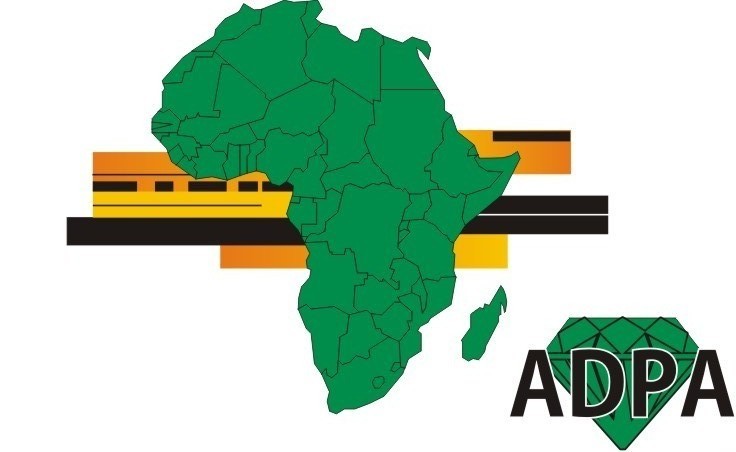 The African Diamond Producers Association (ADPA) has emphasised the importance of the Kimberley Process Certification System (KPCS) in continuing to effectively combat the trade of conflict diamonds while safeguarding its original purpose and principles.
The African Diamond Producers Association (ADPA) has emphasised the importance of the Kimberley Process Certification System (KPCS) in continuing to effectively combat the trade of conflict diamonds while safeguarding its original purpose and principles.
The executive director of the Angola-based association, Ellah Muchemwa, told Rough & Polished's Mathew Nyaungwa that KPCS should not be burdened by issues beyond its mandate.
ADPA recently said that although the KPCS plenary meeting held in Victoria Falls, Zimbabwe was “robust and successful," it was compromised by an "aggressive minority's" attempt to politicise the agenda of the gathering by incorporating geopolitical matters that extend beyond the mandate of the diamond watchdog.
It was referring to the West’s push to discuss Russia.
G7 has since announced that it will, from January 2024, introduce import restrictions on non-industrial diamonds mined, processed, or produced in Russia.
A further restriction on the import of Russian diamonds processed in third countries will be introduced on March 1 2024.
Below are excerpts from the interview.
Who is ADPA?
An inter-governmental and multi-lateral organisation comprising most African diamond-producing countries and/or African countries with the potential to produce diamonds. It was founded in 2006 after the signing of the Luanda Declaration in Luanda, Angola. 18 countries signed the Declaration.
What are the objectives of ADPA?
To promote cooperation and mutual assistance among member states on policies and strategies in the fields of diamond exploration, mining, cutting, polishing, and trading.
The adoption of harmonised legal solutions between member states in areas related to exploration, mining, cutting and trade in diamonds, where individual member states have acquired valuable experience.
The development of human resources and the promotion of mutual technical cooperation in the coordination of policies and strategies for the development of the diamond industry.
Transformation of conflict diamonds, wherever they exist, into diamonds for peace and sustainable development, by the minimum requirements of the Kimberly Process Certification Scheme.
How does ADPA encourage cooperation among member countries?
ADPA encourages cooperation through regular consultation, coordination, and facilitation of information sharing on policies and strategies across the diamond value chain and issues of common interest to its members and observers.
What role does the ADPA play in formalising and integrating artisanal and small-scale miners into the diamond industry?
ADPA plays a role in facilitating the implementation of policies, strategies, regulations and laws aimed at maximising revenue generation from all diamond production including artisanal mining for the benefit of its member states. Furthermore, at the operational level, ADPA facilitates knowledge-sharing workshops and training to enhance the capacity of the member states involved in artisanal mining.
What is ADPA's position on the G7 diamond convention and its implications for diamond-producing countries?
The G7 proposed diamond segregation measures (several versions) bypass, undermine, and substitute the role of the KPCS. ADPA takes exception to the proposed restrictions should they be implemented without due open and inclusive consultation or an assessment of the risks to determine how the establishment of segregation measures may affect the trade of diamonds from ADPA member states, the KPCS, and the reputation of the natural diamonds economy.
The G7 diamond protocol, including other suggested diamond segregation measures, will hurt the revenues of ADPA members, through supply chain disruptions, added costs, and a direct negative impact on artisanal and small-scale diamond miners in the ADPA member states.
It will also be detrimental for the polishing of rough diamonds in the country of origin, as additional costs will be incurred when a parcel of rough diamonds needs to be first shipped to Antwerp to then be re-shipped to the country of origin to be polished.
What is the ADPA's position on the KPCS and its role in diamond trade regulation?
ADPA is an observer in KPCS, which is a globally mandated organisation entrusted with the responsibility of overseeing the diamond trade.
The Kimberly Process is registered with the United Nations General Assembly, This milestone initiative was developed over 20 years ago with the full support of the ADPA members and observers.
As the Kimberley Process moves forward, it is imperative to safeguard its original purpose and principles, ensuring that it continues to effectively combat the trade of conflict diamonds without being unduly burdened by issues beyond its mandate.
The current review and reform process is expected to strengthen the rules and regulations that govern the KPCS. ADPA remains committed to upholding the integrity and efficacy of the Kimberley Process, advocating for steadfast adherence to its core principles and encouraging all KPCS participants and observers to go back to productive discussions under the KPCS umbrella.
How does the ADPA verify that its members comply with the KPCS?
ADPA has a two-pronged approach to KPCS compliance.
- ADPA actively encourages KPCS compliance among its member states and extends technical assistance where possible to support those encountering challenges in meeting KPCS standards.
- ADPA is a member of the KPCS as an observer and works actively in the relevant working groups to support ADPA members and observers.
Mathew Nyaungwa, Editor in Chief of the African Bureau, Rough&Polished
